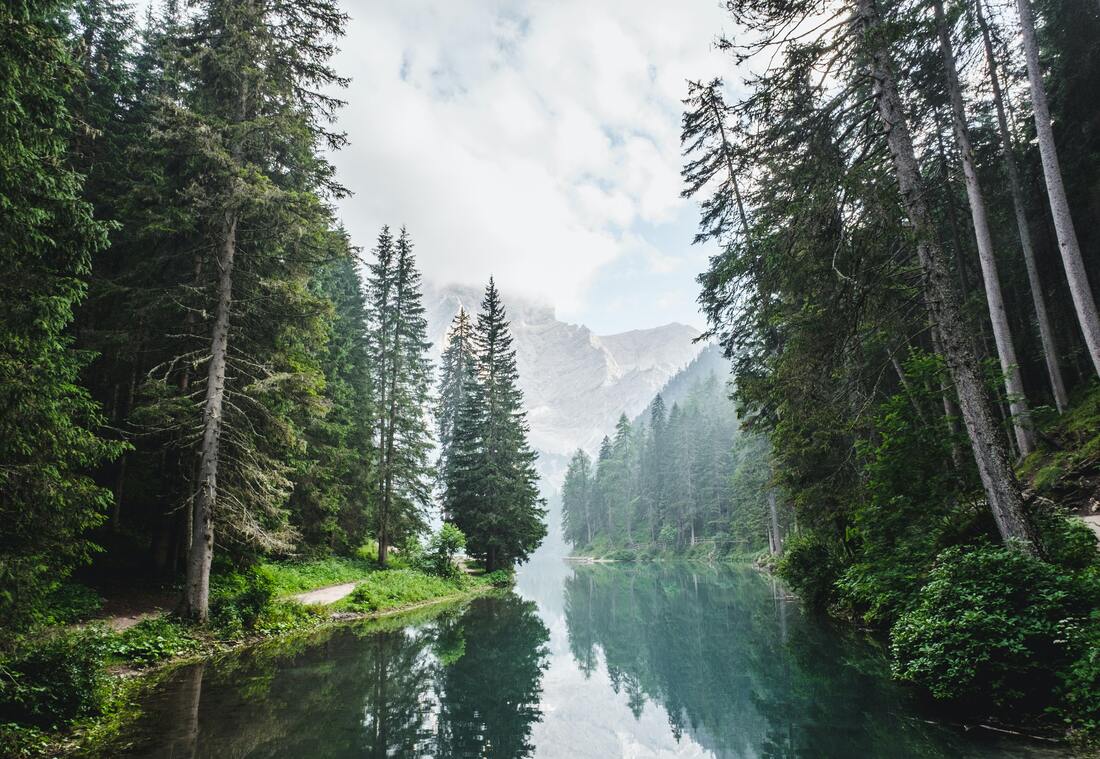|
I have always loved spending time outdoors in nature. As a child I have fond memories of catching tadpoles in buckets, and noticing ones that had started to develop tiny little legs and the ones that hadn’t. A few years later I recall building a “girls only” fort in the trees behind my family home and running and playing in the forest with child-like wonder and natural curiosity. As an adult, I recall many, many road trips to provincial, national, and state parks to go hiking, camping, and paddling. They were amazing times and continue to be an important part of my life as a Northerner, being surrounded by our beautiful, sometimes unforgiving landscape in Northwestern Ontario. In spring 2016, I was completing my Graduate Degree in Social Work and in the throes of writing and researching my final project. It was a hot sunny day and I decided to take a break and turned to my Facebook for a change in scenery. This turned out to be my “aha moment,” as I came across an ad to become a certified forest therapy guide – WHAT?! This is a “thing. . .” I’ve spent my entire life realizing the health and wellness benefits of spending time outdoors, and now there is a language to connect with what I learned, and evidence to support an entirely new way of thinking and being. I was floored and so excited. Soon after that the direction of my Master’s project changed and I was developing a program for Indigenous women and land-based healing combining my formal education, passion for the outdoors, and my desire to work with individuals in their healing journeys. Today I hold a Master’s Degree in Social Work, am a Certified Nature and Forest Therapist, and am working with an amazing team at Kelly Mental Health providing mental health counselling. I am bringing it all together in a way that makes sense to me, pulling from my life experiences and helping people to rediscover themselves within the nature all around us. Nature-based therapy offers a way to both access and work with the body-mind relationship and the emotions associated with it. Essentially, I operate within the philosophy of Mindfulness Practice. When we are struggling with emotional pain, a common way of coping is to disconnect from our emotions and our bodies, only doing what is necessary to get by on a daily basis. In a sense, we put off what needs to be done for our well-being in order to keep up with the other demands of our lives. With Forest Therapy, I aim to guide clients into a more embodied state of being. This state is characterized by moving away from the thinking mind and into the feeling body, accompanied by a shift from duality dependent judgement, i.e., right versus wrong or better versus worse, to simply experiencing through our senses. As we become more embodied, suppressed feelings are often revealed and healing can begin. The primary goal of Forest Therapy is to support the wellness and health of participants through guided immersive experiences in forests and other natural settings. The science behind it goes beyond the scope of this article but please look for it in future articles and in the further reading list below. If what you have read here is of interest to you or you have questions about this process and you are looking for mental health counselling support, consider contacting Laurie Vance, MSW, RSW, Cert., Nature and Forest Therapist at Kelly Mental Health to arrange a counselling session outdoors. "Let us return to where we came from and bathe in the medicine provided by our planet. Reference list:
Clifford, A., Buitenhuis, S.M. 2016. Guide’s handbook of Forest Therapy. The Association of Nature and Forest Therapy Guides and Programs. Jordan, M. 2015. Nature and Therapy: Understanding counselling and Psychotherapy in outdoor spaces. Routledge. Suggested reading: Cruz, C. 2017. The Healing Wonders of Forest Bathing. The Healing Wonders of Forest Bathing Kaplan, S. 1992. The Restorative Environment: Nature and Human Experience. The role of Horticulture in Human Well-being and Social Development. Portland, OR: Timber Press. Yuuki, I., Dhubhaiin, A., Brophy, J., Roddy, D., Burke, C. Murphy, B. 2016. Benefits of Group Walking in Forests for People with Significant Mental Ill-Health. Ecopsychology. Outside Magazine Nov. 28 2012. Take Two Hours of Pine Forests and Call Me in the Morning. |
|
OverviewNWO’s source for all things relationships, mental health, wellness, lifestyle, and pandemic support. Kelly Magazine is a mental health outreach initiative created by Kelly Mental Health and supported by Kelly Mental Health Foundation, a non-profit organization dedicated to improving the community in the area of mental health.
|
Magazine |
Follow Us |
In support of @kellymentalhealthfndn |
© COPYRIGHT. ALL RIGHTS RESERVED. WEB DESIGN BY KMH





